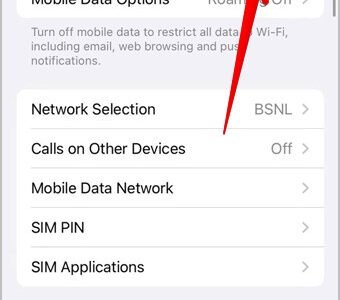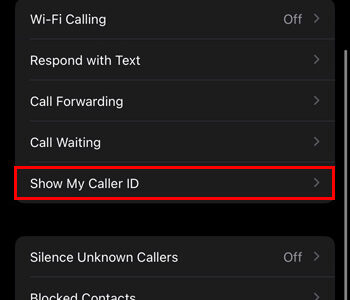Imitating a state of being under the influence of cannabis, for whatever reason—be it for a role in a play, a social experiment, or simply a harmless prank—requires a convincing performance, and that begins with understanding the behavior and mannerisms typically associated with the act. Here, we outline methods to emulate the experience to a believable degree, ensuring that your portrayal is as authentic as possible. Keep in mind that this is intended for entertainment or educational purposes and should not be applied in contexts where it could be deemed inappropriate or disrespectful.

Appear Relaxed
In order to convincingly act ‘high’, one must embody the relaxed and laid-back demeanor that is often characterized by cannabis users. The objective here is to loosen up your body language and gestures.
- Begin by finding a comfortable sitting position; let your limbs hang loosely.
- Slow down all of your movements; imagine moving through water.
- Let your eyelids droop slightly; eyelids tend to be heavier when one is high.
- Allow your smile to come more easily and frequently; many feel a pleasant euphoria.
By adopting a calm and unhurried demeanor, you convey a less intense presence, akin to one under the influence. The challenge lies in avoiding over-exaggeration, as subtlety is essential for believability.
Altered Perception
Cannabis is known to alter the user’s sensory perception. Mimicking this can add depth to your acting.
- Act slightly surprised or fascinated by everyday objects; as if seeing them for the first time.
- Respond to sounds more deliberately or not at all; auditory perception can be amplified or dulled.
- Touch objects as though you’re feeling their texture in a new way.
In embracing an altered perception, it becomes easier to tap into the mannerisms of someone who is high. The key is to not overdo it, which could lead to a less authentic performance.
Giggles and Laughter
Uncontrollable laughter can be a tell-tale sign of being high. Practice emitting giggles and laughter at unexpected moments.
- Find something mildly amusing and let your laughter be a tad more exaggerated than usual.
- Try to make the laughter seem involuntary; it should feel almost as a surprise to you.
- Insert laughing pauses in your conversation; act as if you just thought of something funny.
The sudden outbursts of laughter should feel natural, not forced, and they must be used sparingly to avoid caricature.
Forgetfulness
Short-term memory issues are common among cannabis users, which leads to a scattered train of thought.
- Start a sentence, then pause and ask what you were talking about.
- Misplace items frequently and search for them in obvious spots.
- Repeat questions or statements as if you had not just mentioned them.
The goal is to appear slightly disoriented, but being too forgetful might seem artificial. Balance is necessary to make the forgetfulness seem genuine.
Munchies
Increased appetite, commonly referred to as the “munchies,” is another aspect that can be emulated.
- Have snacks on hand and eat them slowly and deliberately, savoring each bite.
- Act as if the simple act of eating is the most profoundly enjoyable experience.
- Talk about food with exaggerated interest and enthusiasm.
Incorporating food into your act can be humorous and relatable, but try to maintain decorum to not portray a lack of self-control.
Slurred Speech
Drowsiness often leads to slower, more slurred speech patterns.
- Speak slower than usual and enunciate less clearly.
- Let your sentences trail off or merge together.
- Use fillers like “um” or “like,” giving the impression of a slowed thought process.
Altering your speech must be nuanced; if done poorly, it could be misinterpreted as mockery or insensitivity.
Philosophical Insights
Cannabis can provoke deep, reflective thoughts in some users. Sharing pseudo-profound insights can be indicative of being high.
- Talk at length about a seemingly trivial subject or question.
- Pose ‘deep’ philosophical questions in casual conversation.
- React to others’ comments as if they’re incredibly profound.
This behavior should be done sparingly and be tempered with humor to avoid it coming off as too serious.
Paranoia
Some experience a heightened sense of paranoia when under the influence.
- Look over your shoulder occasionally as if you heard something strange.
- Act suspicious of harmless objects or events.
- Whisper conspiratorially about people who are not present.
Bear in mind, this aspect can be challenging to execute without causing discomfort or misunderstanding to those around you.
Dry Mouth
A common physiological effect of cannabis use is dry mouth, which can affect speech and mannerisms.
- Fake difficulty swallowing or clear your throat often.
- Take sips of water intermittently during conversations.
- Occasionally make a point of your mouth feeling dry.
While it can enhance your performance, your actions should be casual and not overplayed to the point of distraction.
Enhanced Emotions
A heightened emotional response to situations is characteristic.
- React to events or comments with slightly more enthusiasm or sadness than would be typical.
- Allow yourself to be more open and affectionate, or conversely, more aloof.
- Exaggerate the sincerity of your reactions in a subtle manner.
These emotional responses should be amplified just enough to be noticeable, not so much as to appear inauthentic.
Each of these methods offers a way to mimic the experience of being high in a controlled and realistic manner. The benefits include a believable and relatable portrayal that can add depth to a character or situation. However, it’s crucial to approach this sensitively to avoid stereotypes or offence. Always be aware of the context, ensuring your performance is suitable for your audience and setting.
In conclusion, acting ‘high’ with authenticity requires a fine balance between subtle quirks and overt mannerisms. The intricate dance of embodying a high character rests in the minor details and understanding the various effects that cannabis can have on a person’s behavior. Respect and caution are essential to successfully portray such a state without reducing it to a mere caricature or offending those who may not appreciate the subject matter.
FAQs
- Is it okay to practice these behaviors in public?
Be mindful of your surroundings and the appropriateness of practicing these behaviors in public. It’s often best to practice in private or in an acting class environment. - How can I ensure I don’t overact when trying to portray someone who is high?
The key to avoiding overacting is observation and subtlety. Observe real-life examples if possible and use them as a benchmark. Less is often more in acting. - Could acting ‘high’ be offensive to some people?
Absolutely. Context and audience are everything. Acting ‘high’ for a role in a performance is different from doing so in a situation where it might mock or trivialize the experiences of others. Always be sensitive to how your actions may be perceived by others.







